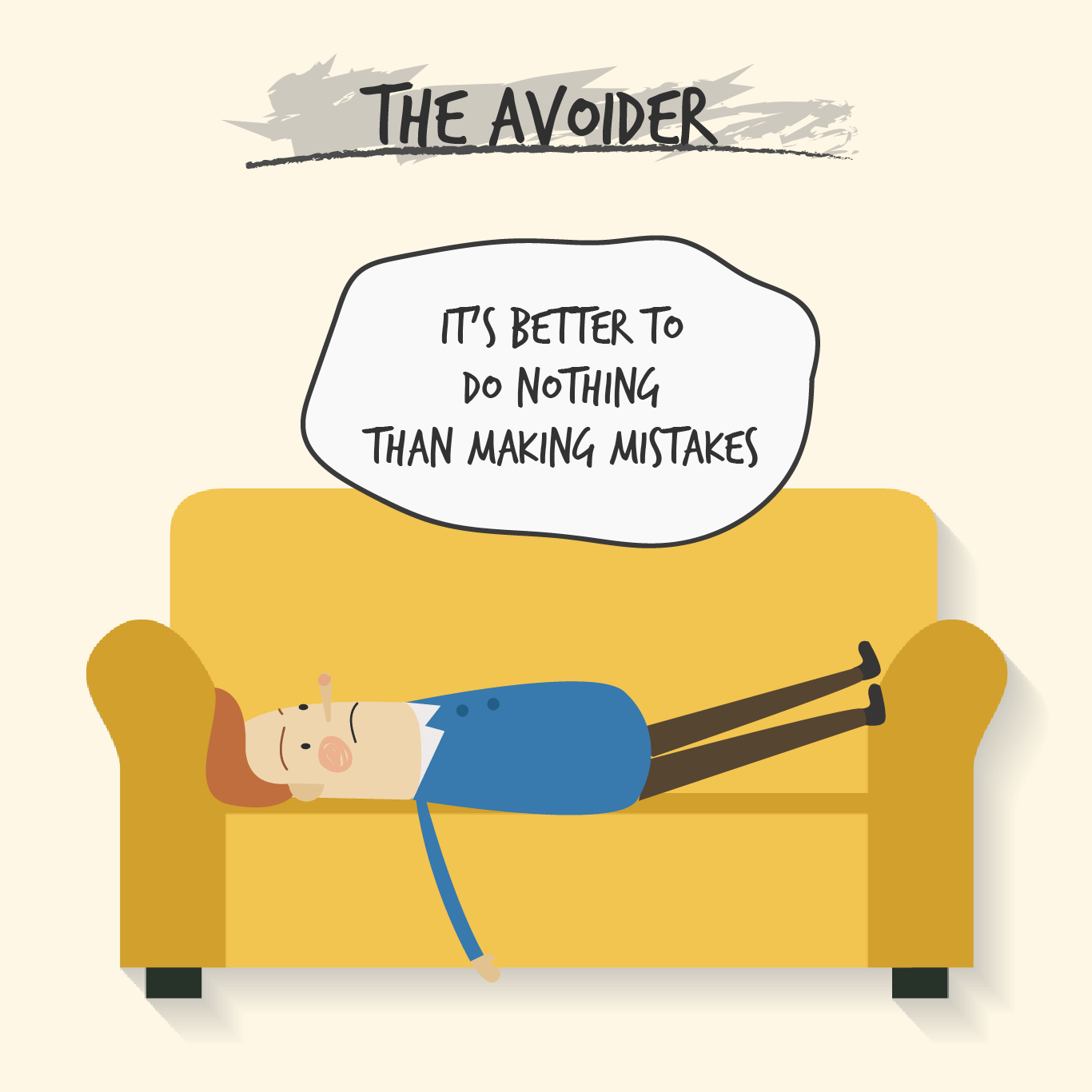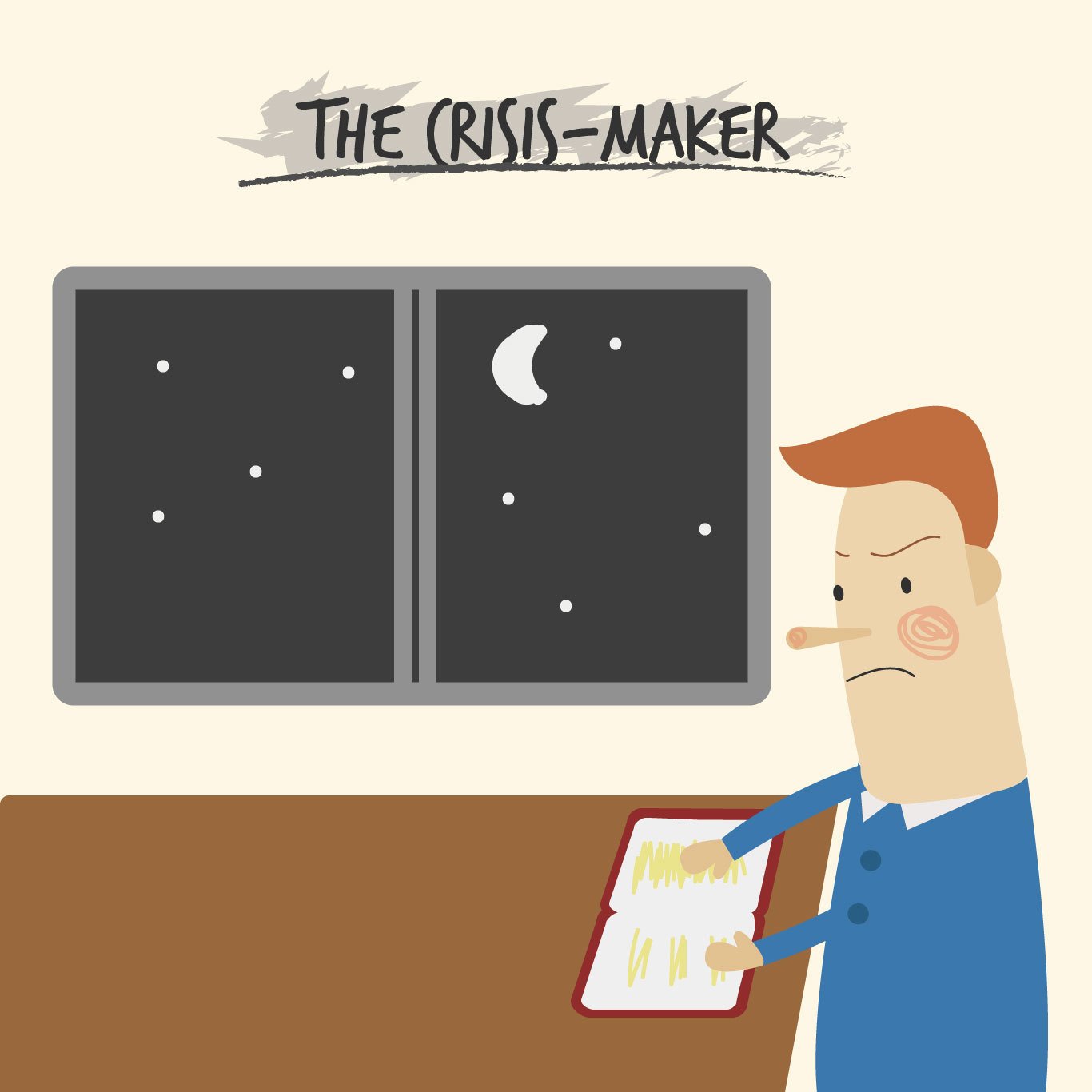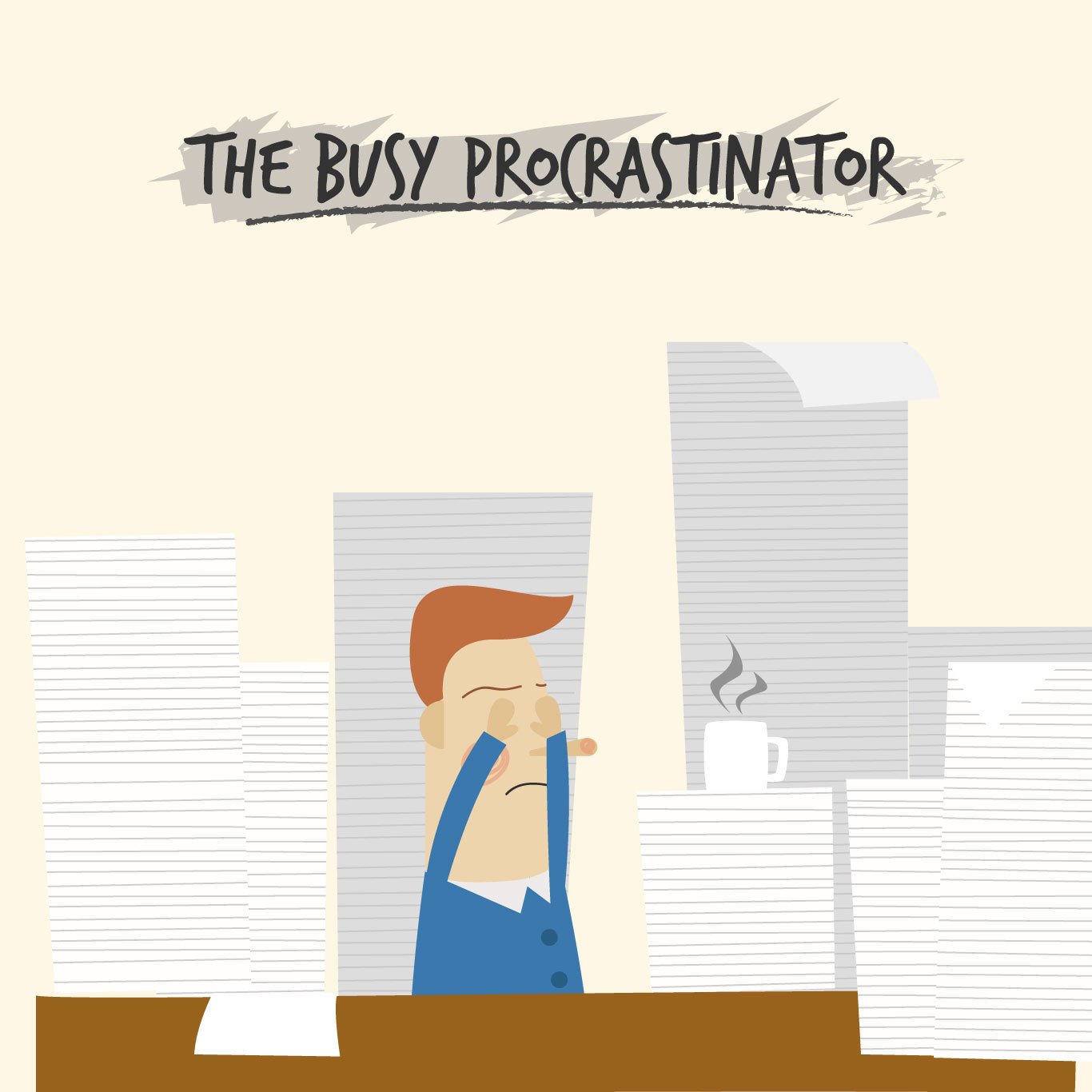We are all guilty of procrastinating from time to time—there’s always something more interesting than the work at hand. We usually think it’s no big deal since a deadline is our biggest inspiration, and we do our best work when we’re inspired. We may even joke about it while we become victims to the various types of procrastinators.
However, procrastination is a massive waste of time and can greatly hurt productivity.
A survey in 2015 found that, on average, a person loses over 55 days per year procrastinating, wasting around 218 minutes every day doing unimportant things. Here’s the math:
218 minutes/day x 365 = 79570 minutes = 55.3 days
That’s a lot of time wasted!
We must fight procrastination to its core, and we can do this if we become more aware of ourselves and this bad habit called procrastination. Only then can we succeed in reaching our goals.
So, what is a procrastinator? Learn the 5 types of procrastination personalities and identify which type of procrastinator you are.
5 Types of Procrastinators
There are 5 common reasons why people procrastinate. To help you identify the reason why you put things off easily, here are 5 types of procrastination and procrastinators.
Type 1: The Perfectionist
They are the ones who pay too much attention to the minor details. The perfectionist is afraid to start the task at hand because they get stressed out about getting every detail right. They can also get stuck in the process, even when they’ve started, since they’re just too scared to move on.
Advice for the Perfectionist
Instead of letting your obsession with details take up all your time, be clear about the purpose of your tasks and assign a time limit to each to deal with this type of procrastination. This will force you to stay focused and finish your task within the time frame.
For example:
If you’re going to write a report, be clear about the purpose of the report first.
If the goal of having the report is to clearly present the changes in data over the past few months, don’t sweat too much about writing up a lot of dainty words; rather, focus more on the figures and charts. Just make sure the goal can be reached, and there’s really no need to work on things that don’t help you achieve the ultimate goal.
Type 2: The Dreamer
This is someone who enjoys making the ideal plan more than taking action. They are highly creative but find it hard to actually finish a task.
Advice for the Dreamer
To stop yourself from being carried away by your endless imagination with this type of procrastination, get your feet back on the ground by setting specific (and achievable) goals for each day based on the SMART framework. Set a goal and break down the plan into small tasks that you can take action on right away.
For example:
If you dream about waking up earlier every day, set a clear goal for it: “In 3 weeks, I will wake up at 6:30am every day.”
Then, break this goal down into smaller tasks:
- From tonight onwards, I will go to sleep before 11:00pm.
- Set alarm to remind me to go to sleep
- Schedule earlier friend gatherings so I can go to sleep early
- For the 1st week, I will wake up at 7:30am even for non-working days
- Go jogging or swimming in the morning for weekends
Also, you should reflect on your progress while you work. Track your input and output for each task, so you can easily tell which tasks are only a waste of time with little importance. This can help you focus on doing the things that bring positive results, which will improve productivity.
Type 3: The Avoider / Self-Saboteur
The worriers are scared to take on tasks that they think they can’t manage. They would rather put off work than be judged by others when they end up making mistakes.
Advice for the Avoider
I know checking emails seems tempting, but don’t make answering emails the first thing on your to-do list. More often than not, emails are unimportant, but they steal your time and mental energy before you even notice.
Instead, focus on the worst first to tackle this type of procrastination. Spend your morning working on what you find the most challenging. This will give you a sense of achievement, and it helps you build momentum for a productive day ahead.
Try to break down your tasks into smaller sub-tasks. Understand how much time and energy is really needed for a given task, and make realistic calculations.
For example:
A 2000-word report does seem to take a lot of time and effort, and it does seem scary to just start working on it. But is there anyway to break this down into smaller pieces so it’ll seem less scary? You can try this:
- Introduction: around 100 words (15 min)
- Table of content (5 min)
- Report on the financial status: a chart with 100 words supporting text (20 min)
- Case study: 3 cases based on the new business model with around 400 words each (around 40 min each)
- Conclusion: around 800 words (30 min)
Does it look a lot easier now?
Type 4: The Crisis-Maker
The crisis-maker deliberately pushes back work until the last minute. They find deadlines (the crises) exciting and believe that they work best when working under pressure, which causes them to manage their time poorly.
Advice for the Crisis-Maker
Being forced to rush the work because you will perform better is just an illusion because it actually leaves you no room for reviewing the work to make it better afterwards with this type of procrastination.
If you always leave work until the last minute, try using the Pomodoro technique, developed by Italian entrepreneur Francesco Cirillo.
It focuses on working in short, intensely focused bursts, and then giving yourself a brief break to recover and start over.
For example:
Use a timer and divide your complex work into small, manageable sessions. In between the small sessions, give yourself a break to recover.
While giving your brain a regular break can highly boost your performance by recharging your brain’s energy, having completed the tasks earlier allows you to have plenty of time to go through your work again to make it even better.
Type 5: The Busy Bee
This type of procrastinators are the fussy ones. They have trouble prioritizing tasks because they either have too many of them or refuse to work on what they see as unworthy of their effort. They don’t know how to choose the task that’s best for them and simply postpone making any decisions.
Advice for the Busy Procrastinator
You have to get your priorities straight when you run into this type of procrastination. Important tasks should take priority over urgent ones because “urgent” doesn’t always mean important. You only have so much time and energy, and you don’t want to waste that on things that don’t matter.
Identify the purpose of your task and the expected outcome. Important tasks are the ones that add value in the long run.
Replying to an email that says “please get back to me asap” seems to be urgent, but before you reply that email, think about how important it is compared to other tasks.
For example:
Imagine the email is sent by a client asking about the progress of a project, and she wants you to reply to her as soon as possible; at the same time you have another task about fixing the logistics problem that is affecting all the projects on hand. Which one should you handle first?
The time cost for replying to an email is low, but the benefit is also very low because you’re just satisfying one client’s request. Fixing the logistic problem probably takes a lot more time, but it’s also a lot more worth it because by fixing the problem, you’re saving all the projects on hands, benefiting the whole company.
The Bottom Line
You may notice most of the characteristics of procrastinators have to do with their mindset. People keep delaying work because of fear. This is exactly why tweaking our attitude towards work can help us stop procrastinating.
Changing your mindset may seem like a lot of work, but by doing the smallest things every day, you’re getting used to the way you handle work—from setting goals, to breaking down tasks, to evaluating each task’s values.
Featured photo credit: Nick Fewings via unsplash.com

























